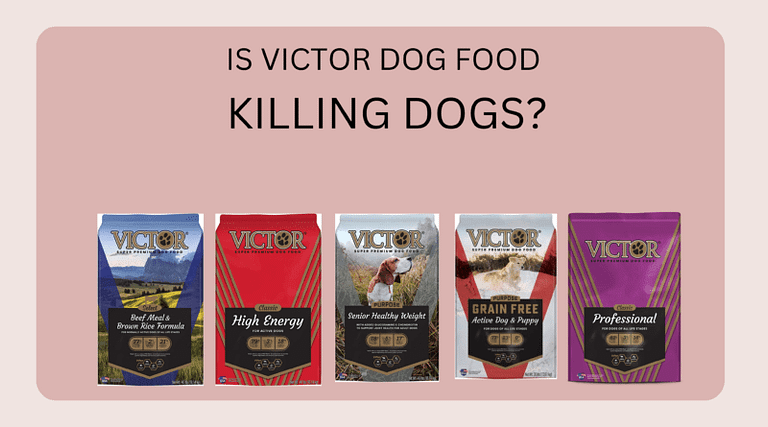7 Reasons Why Do Dogs Nibble On You
Nibbling is a common behavior mostly seen in puppies. It is light and gentle; many pet owners call it “cobbing.” A dog can nibble on toys and other dogs too. Even though nibbling causes no pain or harm, you might still want to understand more about nibbling and how he does it. So, why do dogs nibble?
A dog can nibble on you as a way of showing affection, and excitement, has an oral problem, displaying ownership, seeking attention, instinctive Behavior, or Canine Post-traumatic Stress Disorder (PTSD)
7 Reasons Why Do Dogs Nibble On You
1.To Show Affection
Dogs express their feelings in many ways, like licking someone, nibbling, or any other way. So your dog might be passing a message to you that he loves and adores you.
2. Instinctive Behavior
Many puppies display this instinctive behavior, mostly using their front teeth. Puppies learn this behavior in their early days as they play with each other. Once they are separated from the litter, they can continue with the behavior and, this time, nibbling on you.
Nibbling is also important to puppies when they are teething. It helps on easing the pain and discomfort experienced during this period. If your puppy is nibbling because of teething, you should give him play toys and frozen treats to play with.
3. Excitement
Dogs can get overly excited, especially after seeing their favorite person. For instance, your dog can be overly excited about seeing you from work, and he might express his happiness by nibbling on you to show how much he has missed you.
4. Stress or Anxiety
Stress and anxiety are other causes that can lead to nibbling. This is most common in dogs who have separation anxiety. Also, if your dog is in an unfamiliar environment or around unfamiliar people or pets, he can start nibbling to show you that he is uncomfortable. Therefore, it is advisable to socialize dogs early and familiarize them with different environments.
5. Oral Problems
Dental problems can make your dog nibble on you to ease the discomfort. Some of the oral problems include periodontal disease and gingivitis. You should regularly check on your dog’s mouth to see if he is fine and maintain oral hygiene to prevent diseases.
In other cases, something might be stuck in your dog’s teeth, making him uncomfortable. But, again, regularly checking them will make it easy for you to notice any abnormalities.
6. Display of Ownership
Dogs like to mark their territory, and it might be you this time. He wants you to know that you are his possession. This is mostly seen in a home with many pets fighting for your attention. He might also want to notify the other pets that you are his.
7. Canine Post-traumatic Stress Disorder (PTSD)
Post-traumatic stress disorder (PTSD) symptoms are frequently seen in dogs who have gone through traumatic experiences. It’s possible that an accident, abuse, or neglect caused this trauma.
The symptoms of canine PTSD include hyperawareness, anxiety, bowel problems, aggressiveness, and others.
Dogs with this condition are more likely to bite out of fear and may nip as a form of self-comfort.
What’s the Difference Between Nibbling, Mouthing & Biting?
Differentiating between the three helps you know when action needs to be taken. Each of them is done with a different motive.
Nibbling
This is mostly done with the incisors. It is a way of passing a message to the owner. It was mostly done when the dog was excited or wants to play. Nibbling is mostly done when the puppies are still exploring the world around them or during teething.
Mouthing
When a dog is mouthing, he uses his whole mouth but not the incisors alone. He does not exert enough pressure to cause pain. Excited dogs mostly do mouthing. Despite how adorable it may seem, some people might find it unsettling when a dog mouths them.
Biting
Unlike nibbling and mouthing, dog biting usually signifies dominance rather than being playful. Dogs occasionally bite when they get overly excited while playing—however, some bite out of aggression, stress, or separation anxiety.
Things To Do When Your Dog Nibbles on You
Identify Your Dogs Trigger
You can only find a solution to your dog’s nibbling if you know its trigger. It would help if you took note of the events that result in the nibbling and how often it happens. Each cause has a different way of handling it.
Give A distraction
Giving your dog something to chew on is the best way to train her to stay away from your body parts. The Animal Humane Society advises that if your dog nibbles on you while playing with her, you should give her a chew toy to nibble on instead.
By giving him a toy, he will learn from a young age that biting on toys is acceptable but biting on people is not.
Do Not Punish Your Dog
Do not punish your dog as a way of stopping your dog from nibbling. Instead, it would be best if you ignored or redirected the behavior. Additionally, yelling, smacking, or screaming will make your dog nibble more, especially if he is doing it to get attention. You should take him to a behaviorist if the nibbling gets out of hand.
Read Also: How Long Do Dogs Stay Stuck Together

Hey, I’m Caroline, and I’m all about bulldog love, travel, and lending a helping hand to shelter pals. Writing about dogs for five years has let me share the magic of their stories and the world of pet care. My heart? It belongs to Bella, my amazing bulldog sidekick. Together, we’re off on adventures, spreading kindness, and making shelter life brighter. Join us in celebrating the joy of dogs and making a difference!






